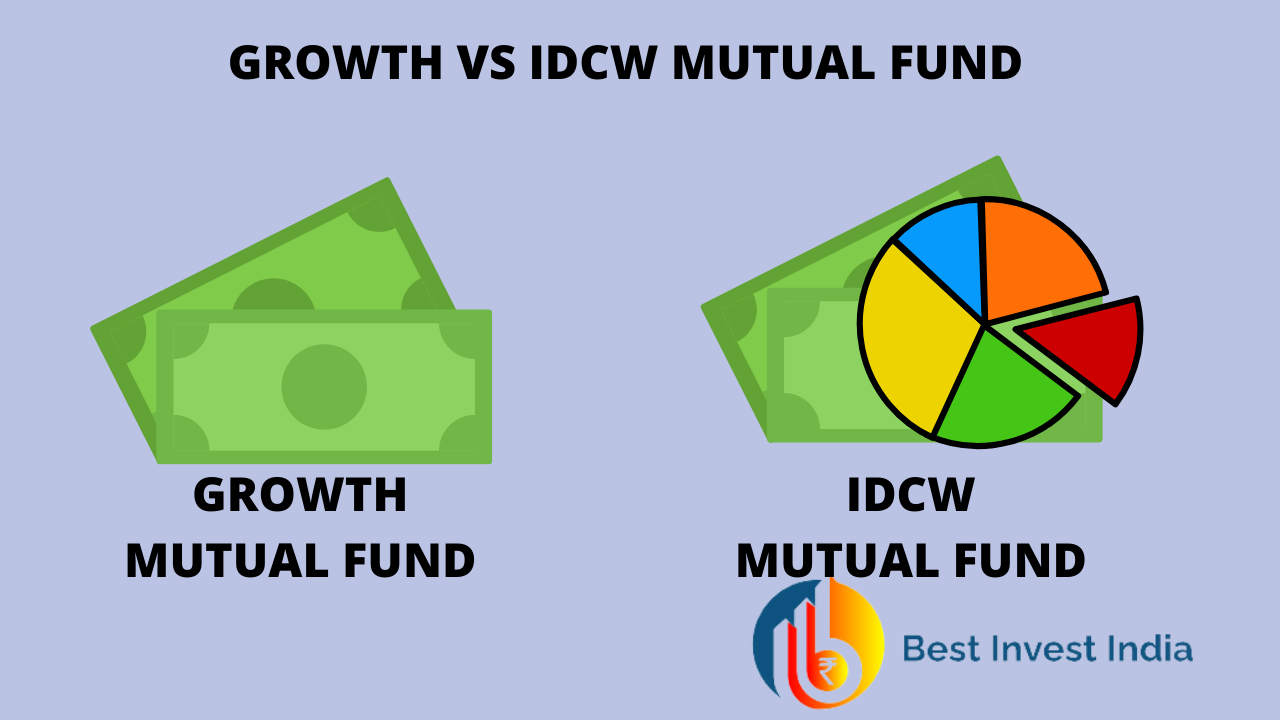Rahul is a DIY investor and he wanted to invest in mutual funds to accumulate wealth for his future financial life goals. But he was not sure about the growth or IDCW (dividend) which is better for him. In this post, we will discuss all cons and pros of the growth vs IDCW (dividend) option in mutual funds.
Mutual Funds offer broadly two types of options – Growth and IDCW (dividend). Each one has its own merits. It depends on the person’s own requirement that suits him most.
Table of Contents
What is Growth Option in Mutual Funds
A growth option is an option where you do not take interest/profit in between and thus you allow it (interest) to accumulate in your mutual fund scheme. Here, since you do not take profit, you earn a profit on profit and thus benefit from compounding.
Therefore, like Rahul, if you wish to accumulate wealth in long term/short term then you should opt for a Growth option in mutual funds.
Mutual Fund growth option also suits a person who does not require regular cash flow from their investments.
Important Points for Growth Mutual Fund
- The NAV of the Growth fund will always be higher than dividend mutual funds because in IDCW option profits are paid back to investors.
- The portfolio ( where the MF scheme invests its money) is the same for growth and dividend MF.
- The total return on growth option is higher in the case of a growth fund ( compounding effect).
- The growth option and Dividend reinvestment option are the same from an investment point of view but the taxation of dividend is different.
- For taxation of equity and debt mutual fund please refer to post https://bestinvestindia.com/mutual-fund-taxation-fy-2019-20/
What is Dividend Option ( IDCW)* in Mutual Funds
In the dividend option ( IDCW) profit made by mutual funds is paid to the investors. The dividend payout frequency varies from fund to fund.
The mutual fund scheme may pay dividends monthly, annually or any time as and when the mutual fund scheme generates profit. However, some schemes also offer other pay-out intervals e.g. daily, monthly, quarterly, etc.
What is IDCW Reinvestment?
There is one more option i.e. IDCW (Dividend) reinvestment option. In this option, new units are purchased with the profit generated by the scheme. Here dividend is declared but instead of paying the dividend to the customer, the fund buys additional units from the dividend.
As Rahul is an earning member and he does not require any income from his money therefore dividend option is not suitable for him.
Important Points for IDCW (Dividend) Mutual Fund
- The dividend is paid from the profit generated by the scheme- as per SEBI Rule.
- Dividend frequency, interval, and amount are not FIXED. Therefore if you are looking for constant income then dividend may not be a viable option for you instead you can use SWP option in mutual funds.
- The dividend paid to the investor is adjusted from the NAV ( unit price ) of the mutual fund scheme. Hence after dividend payment, the NAV of the MF scheme drops, while in the case of the dividend reinvestment option the number of units increases.
- For example, say before paying the dividend NAV was Rs 21 but after payment of dividend, the NAV reaches Rs 12.
- The dividend paid to the investor is taxed in the investor’s hand. Earlier the tax liability was on companies but now it has been on investors ( as per investor tax slab rate).
Now dividend is known as *IDCW – Income Distribution cum Capital Withdrawal Plan
Growth vs dividend mutual fund – Which is better
| Difference | GROWTH MUTUAL FUND | DIVIDEND MUTUAL FUND | |||
| Purpose to invest | Appreciation of Money | Income from Money | |||
| NAV of Fund | NAV is always higher as compared to the dividend option | After dividend payment, NAV will reduce. So NAV get lower after profit payment | |||
| Profit of the scheme | Kept with fund only and this leads to NAV increase and thus profit increase | Profit is paid to the investor from time to time | |||
| Taxation | Short-term or Long term tax is applicable. This ta depends on when you withdraw your money | taxed as per income tax slab rate of investor | |||
| Who should invest | If you want money to grow in value | If you need income from your mutual fund investment | |||
| Which is better | For money accumulation/growth option is better | For income dividend option is better | |||
| Taxation point of view | From a taxation point of view growth fund is better because of low taxation |
|
Conclusion
Even though the investment portfolio is the same in both growth and dividend mutual funds but the difference lies in how the profit is distributed in both the options.
From a taxation point, growth option definitely enjoys tax advantage, especially over longer investment tenures.
Additionally, if you want your money to grow in value you should go for the growth mutual fund option while if you want to take income from your money and you do not want to opt for the SWP option in the mutual fund then you may consider the dividend option.









